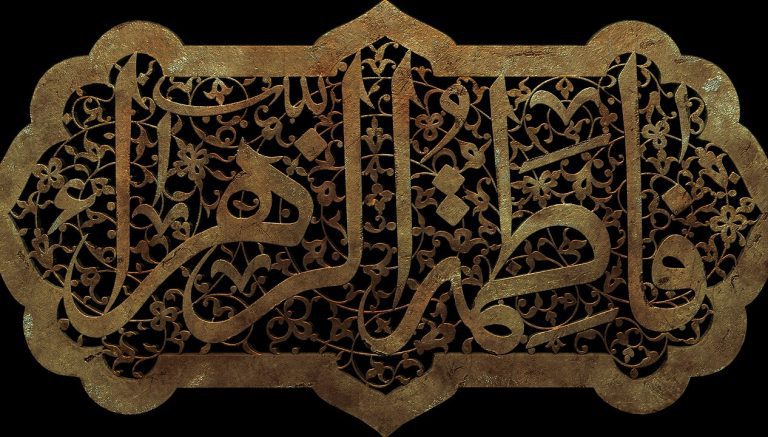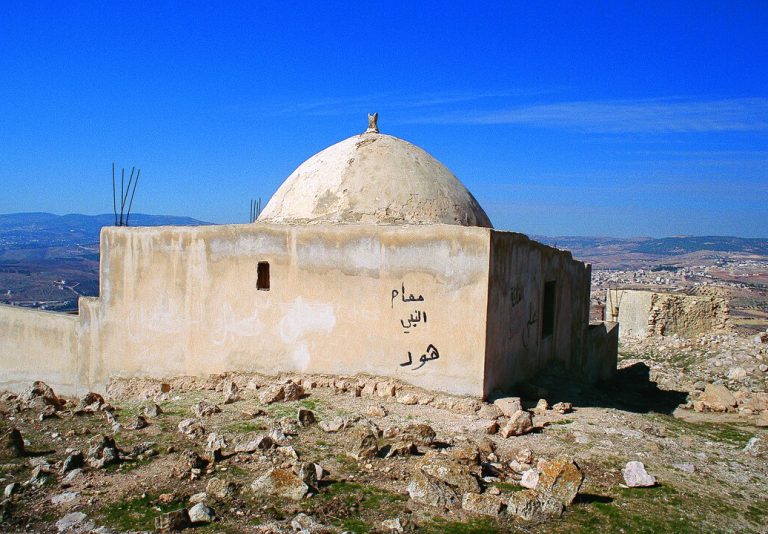The Story of Prophet Musa (Moses)
Embark on an emotional journey through the captivating narrative of The Story of Prophet Musa (Moses), a tale of courage, faith, and divine intervention. Explore the trials and triumphs of this legendary figure, whose story continues to inspire and resonate with believers around the world.
Introduction:
Step into the timeless narrative of The Story of Prophet Musa (Moses), a saga steeped in emotion, resilience, and unwavering faith. Join us as we delve into the depths of his extraordinary journey, uncovering the profound lessons and insights that lie within.
The Birth of Musa (Moses)
The story of Musa (Moses) begins with his miraculous birth amidst a time of oppression and tyranny. Born into a world fraught with peril, he is destined for greatness, shielded by divine protection from the moment of his inception.
Divine Protection
Despite the perilous circumstances surrounding his birth, Musa (Moses) is cradled in the loving embrace of divine protection. His life is a testament to the power of faith and the unwavering commitment of a higher power to guide and safeguard those who walk in righteousness.
Musa (Moses) and Pharaoh
Musa (Moses) is called to confront Pharaoh, the tyrannical ruler whose heart is hardened against the plight of the oppressed. With unwavering resolve and a deep sense of purpose, Musa (Moses) embarks on a journey to liberate his people from the shackles of bondage.
The Call to Leadership
In a moment of divine revelation, Musa (Moses) is called to assume the mantle of leadership and guide his people out of bondage. Despite his initial hesitation and self-doubt, he embraces his destiny with courage and conviction, trusting in the guidance of a higher power.
The Exodus
Under the leadership of Musa (Moses), the Israelites embark on a journey of liberation and redemption. Their exodus from Egypt is marked by miraculous signs and wonders, as the hand of the divine orchestrates their deliverance from bondage.
The Parting of the Sea
In a moment of unparalleled awe and wonder, Musa (Moses) parts the sea, creating a path of escape for his people. This miraculous event serves as a symbol of hope and redemption, demonstrating the power of faith to overcome seemingly insurmountable obstacles.
Receiving the Commandments
On Mount Sinai, Musa (Moses) receives the divine commandments, laying the foundation for a covenant between God and His people. These sacred laws serve as a moral compass for generations to come, guiding the faithful on the path of righteousness.
Divine Guidance
Throughout his journey, Musa (Moses) is guided by divine revelation and inspiration, as he navigates the challenges of leadership and faith. His unwavering trust in the guidance of a higher power serves as a source of strength and resilience in the face of adversity.
The Golden Calf
In a moment of betrayal and faithlessness, the Israelites succumb to idolatry, fashioning a golden calf to worship in place of the one true God. Despite their transgressions, Musa (Moses) intercedes on their behalf, demonstrating the transformative power of forgiveness and compassion.
Betrayal and Forgiveness
Despite facing betrayal and faithlessness from his own people, Musa (Moses) exemplifies the power of forgiveness and reconciliation. His capacity to forgive serves as a testament to the transformative power of compassion and mercy, even in the face of betrayal.
Forty Years in the Wilderness
For forty years, Musa (Moses) and his people wander in the wilderness, facing trials and tribulations as they journey towards the Promised Land. Despite the hardships they endure, their faith remains steadfast, sustained by the promise of a brighter future.
The Trials of Faith
Throughout their journey, Musa (Moses) and his people face numerous trials and tribulations, testing their faith and resolve. Yet, through it all, they remain steadfast in their commitment to trust in the divine plan, knowing that their ultimate destination lies beyond the horizon.
The Promised Land
After years of wandering, Musa (Moses) leads his people to the Promised Land, a land flowing with milk and honey. Their arrival marks the fulfillment of a divine promise, a testament to the faithfulness of God and the perseverance of His people.
Legacy of Musa (Moses)
The legacy of Musa (Moses) endures through the ages, inspiring believers of all faiths to emulate his courage, faith, and unwavering commitment to righteousness. His story serves as a timeless reminder of the transformative power of faith and the enduring legacy of hope.
Enduring Inspiration
From the burning bush to the parting of the sea, the story of Musa (Moses) is replete with moments of divine inspiration and intervention. His journey serves as a testament to the power of faith and the enduring presence of a higher power in the lives of His people.
The Story’s Moral Teachings
At its core, the story of Musa (Moses) imparts invaluable moral teachings that resonate with believers of all faiths. From the importance of courage and resilience to the transformative power of forgiveness and compassion, each chapter offers profound insights into the human condition.
Courage in the Face of Adversity
Musa’s (Moses’) journey is marked by moments of unparalleled courage and bravery, as he confronts Pharaoh and leads his people out of bondage. Despite facing seemingly insurmountable odds, he remains steadfast in his commitment to righteousness, inspiring all who encounter his story.
The Power of Faith
Throughout his journey, Musa (Moses) demonstrates unwavering faith in the divine plan, trusting in the guidance of a higher power even in the darkest of times. His steadfast belief serves as a source of strength and resilience, empowering him to overcome any obstacle that stands in his path.
Lessons in Leadership
Musa’s (Moses’) leadership is characterized by humility, compassion, and a deep sense of responsibility towards his people. He leads by example, demonstrating the importance of servant leadership and the transformative power of integrity and moral courage.
Humility and Servant Leadership
Despite his exalted status as a prophet and leader, Musa (Moses) remains humble and grounded, placing the needs of his people above his own. His servant leadership style serves as a timeless example of the transformative power of humility and selflessness.
The Importance of Forgiveness
Musa’s (Moses’) capacity to forgive his people for their transgressions serves as a testament to the transformative power of compassion and mercy. Despite facing betrayal and faithlessness, he extends forgiveness to those who have wronged him, demonstrating the healing power of reconciliation.
Healing Wounds of the Past
Through acts of forgiveness and reconciliation, Musa (Moses) heals the wounds of the past, paving the way for a brighter future for his people. His example serves as a timeless reminder of the transformative power of forgiveness in overcoming past grievances and divisions.
The Symbolism in Musa’s (Moses’) Journey
The narrative of Musa’s (Moses’) journey is rich in symbolism, each element carrying profound metaphorical significance. From the burning bush to the parting of the sea, each symbol offers deeper insights into the spiritual and moral dimensions of the story.
The Burning Bush
The burning bush symbolizes the divine presence and revelation, as God speaks to Musa (Moses) and commissions him to lead His people out of bondage. It serves as a powerful reminder of the transformative power of divine inspiration and intervention in the lives of His people.
The Staff
Musa’s (Moses’) staff symbolizes his authority and power as a prophet and leader. It becomes a vessel through which divine miracles are wrought, demonstrating the limitless power of faith and the unwavering commitment of a servant of God.
The Plagues
The plagues that befall Egypt symbolize the divine judgment and justice that accompanies the liberation of God’s people. Each plague serves as a testament to the power of faith and the consequences of disobedience, ultimately leading to the liberation of the Israelites from bondage.
The Tabernacle
The tabernacle symbolizes the presence of God among His people, serving as a place of worship and communion. It becomes a tangible reminder of God’s faithfulness and provision, guiding His people on their journey towards the Promised Land.
The Promised Land
The Promised Land symbolizes the fulfillment of God’s promise and the ultimate destination of His people. It serves as a beacon of hope and redemption, a land flowing with milk and honey where His people can dwell in peace and prosperity.
The Role of Faith
Central to Musa’s (Moses’) journey is his unwavering faith in the divine plan and purpose. It is this steadfast belief that sustains him through the trials and tribulations of leadership, guiding him towards the fulfillment of his divine mission.
Miracles and Miracles
Throughout his journey, Musa (Moses) experiences countless miracles and wonders, each serving as a testament to the power and providence of God. From the parting of the sea to the plagues of Egypt, each miraculous event underscores the divine presence and intervention in the lives of His people.
Relevance of Musa’s (Moses’) Story Today
Despite being set in ancient times, the story of Musa (Moses) remains profoundly relevant in today’s world. From the challenges of oppression and injustice to the importance of faith and resilience, its timeless teachings continue to resonate with believers of all faiths.
Navigating Modern Challenges
In an age marked by uncertainty and turmoil, the story of Musa (Moses) offers invaluable guidance and inspiration. His unwavering faith and courage in the face of adversity serve as a timeless example for believers facing modern-day challenges and tribulations.
Unity in Community
Musa’s (Moses’) story celebrates the unity and resilience of a community bound together by faith and common purpose. In a world marked by division and discord, it serves as a reminder of the transformative power of unity and solidarity in overcoming adversity.
Strength in Diversity
Through his leadership, Musa (Moses) embraces the diversity of his people, recognizing the inherent strength that comes from unity and cooperation. His story serves as a timeless reminder of the importance of inclusivity and acceptance in building strong and resilient communities.
The Message of Hope
At its core, the story of Musa (Moses) is a message of hope and redemption, reminding believers that even in the darkest of times, there is light to be found. Through faith and perseverance, we can overcome any obstacle and emerge stronger than before.
Finding Light in Darkness
Musa’s (Moses’) journey from bondage to liberation serves as a powerful metaphor for the human experience, reminding us that even in the darkest of times, there is hope for a brighter future. His story inspires us to seek out the light that guides us towards a better tomorrow.
FAQs About The Story of Prophet Musa (Moses)
- How did Musa (Moses) receive his divine calling?
Musa (Moses) received his divine calling through a miraculous encounter with God at the burning bush, where he was commissioned to lead His people out of bondage.
What were the plagues of Egypt?
The plagues of Egypt were a series of divine judgments sent upon Pharaoh and the Egyptians as a consequence of their refusal to release the Israelites from bondage.
How did Musa (Moses) part the sea?
Musa (Moses) parted the sea through divine intervention, stretching out his staff and invoking the power of God to create a path of escape for his people.
What lessons can be learned from Musa’s (Moses’) encounter with the Golden Calf?
Musa’s (Moses’) encounter with the Golden Calf teaches valuable lessons about the dangers of idolatry and the importance of remaining faithful to God’s commandments.
Why did Musa (Moses) spend forty years in the wilderness?
Musa (Moses) spent forty years in the wilderness as a consequence of the Israelites’ lack of faith and disobedience. It was a period of purification and preparation for their eventual entry into the Promised Land.
What is the significance of the Promised Land in Musa’s (Moses’) story?
The Promised Land symbolizes the fulfillment of God’s promise and the ultimate destination of His people, a land flowing with milk and honey where they can dwell in peace and prosperity.
Conclusion: The Eternal Flame
As we reflect on The Story of Prophet Musa (Moses), we are reminded of the enduring power of faith, resilience, and unwavering commitment to righteousness. Through his remarkable journey, Musa (Moses) exemplifies the timeless virtues that define the human spirit, inspiring generations to come.







